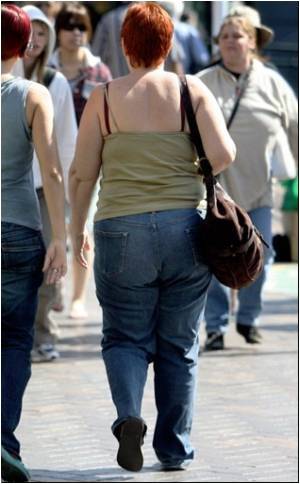Scientists have pointed out that even a brief period of food indulgence could lead to a prosperous looking waist.

Their study showed that a four-week episode of increased energy intake and decreased exercise can cause increased weight and fat mass more than two years later when compared to control individuals.
As part of the study, the researchers investigated the long term effects of a sedentary and gluttonous lifestyle. They capped the physical activity of 18 individuals and used excessive food consumption to increase their energy intake by an average of 70 percent for four weeks. A separate control group ate and exercised as normal.
The intervention group gained an average of 6.4 kg in body weight, which was mostly lost 6 months later. However, one year later the intervention group showed an increased fat mass compared to baseline; the differences were even greater after two and a half years.
Ernersson said: "The long term difference in body weight in the intervention and control groups suggests that there is an extended effect on fat mass after a short period of large food consumption and minimal exercise."
The study provides interesting new evidence to suggest that even a short period of excessive eating and a lack of exercise can potentially change an individual's physiology, causing it to be harder to lose and keep off weight.
Advertisement
The study has been published in BioMed Central's open access journal Nutrition and Metabolism.
Advertisement















